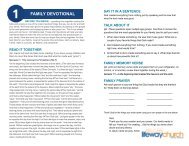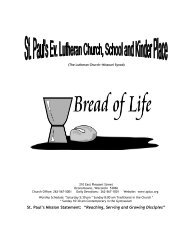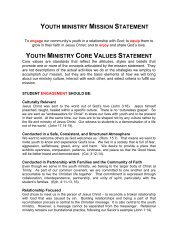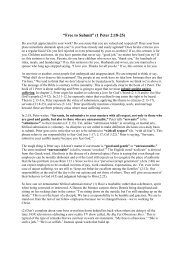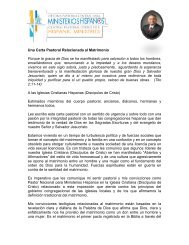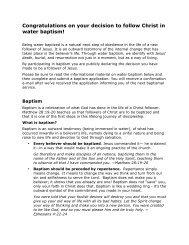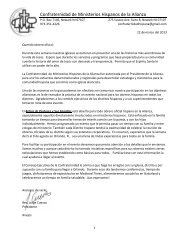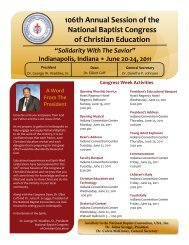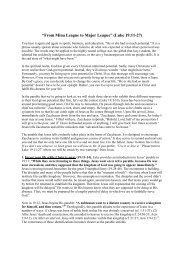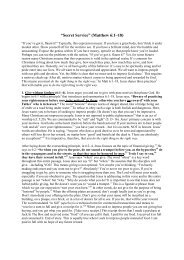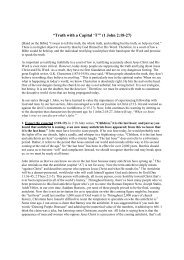A Proposal to Reduce Unnecessary Divorce - Razorplanet
A Proposal to Reduce Unnecessary Divorce - Razorplanet
A Proposal to Reduce Unnecessary Divorce - Razorplanet
You also want an ePaper? Increase the reach of your titles
YUMPU automatically turns print PDFs into web optimized ePapers that Google loves.
56<br />
42. Susan L. Pollet and Melissa Lombreglia, “A Nationwide Survey of Manda<strong>to</strong>ry<br />
Parent Education,” Family Court Review 46, no. 2 (April 2008): 375–94.<br />
43. Indeed, co-parenting after divorce requires so much sensitivity and cooperation<br />
that it’s tempting <strong>to</strong> suggest that people who have learned <strong>to</strong> do post-divorce<br />
parenting well would have been able <strong>to</strong> stay married well if they had gotten help soon<br />
enough.<br />
44. The pre-filing class requirement could be combined with an additional face-<strong>to</strong>face<br />
class required of parents who have cus<strong>to</strong>dy and other shared parenting conflicts<br />
after filing cases. See the model bill in part three, which is nearly identical <strong>to</strong> one being<br />
considered by the Minnesota legislature.<br />
45. We have devoted considerable space <strong>to</strong> the pre-filing parent education proposal<br />
because, like the manda<strong>to</strong>ry waiting period, it would apply <strong>to</strong> the whole population<br />
of divorcing couples with minor children. It’s a population intervention that could<br />
benefit even those parents who would not seek assistance on co-parenting and reconciliation<br />
on their own. Interestingly, the most common evaluation by divorcing parents<br />
who take the currently mandated post-filing classes is that they (a) would not have<br />
taken the class on their own accord, and (b) are glad they did and would recommend<br />
the classes <strong>to</strong> others. We expect the same response <strong>to</strong> the course requirement: few<br />
would voluntarily take it this soon (just as few people would seek financial counseling<br />
before filing for bankruptcy), and yet they will find the course surprisingly helpful <strong>to</strong><br />
themselves, <strong>to</strong> their children, and in some cases, <strong>to</strong> their marriage.<br />
46. <strong>Divorce</strong> Education Online, “Children in the Middle,” http://online.divorce-<br />
education.com/.<br />
47. In addition <strong>to</strong> reducing parent conflict and enhancing children’s well-being, the<br />
face-<strong>to</strong>-face version of Children in the Middle has been found <strong>to</strong> reduce re-litigation<br />
rates, an issue of major concern <strong>to</strong> the courts.<br />
48. Disclosure: William Doherty developed and delivers the reconciliation module<br />
for Children in the Middle Online, although without compensation and with the understanding<br />
that the module will be available separately, for free or at minimal cost for<br />
professionals and couples <strong>to</strong> access online.<br />
49. Barry Wellman et al., Networked Families (Washing<strong>to</strong>n, DC: Pew Internet and<br />
American Life Project, 2008), http://www.pewinternet.org/Reports/2008/Networked<br />
Families.aspx. The report discusses findings from a national survey of 2,252 adults in<br />
late 2000 and early 2008, which indicated that two-thirds of families had a broad band<br />
connection.<br />
50. Because married couples with children have the highest educational and income<br />
levels of any group in the population, their Internet access in rural areas is no



